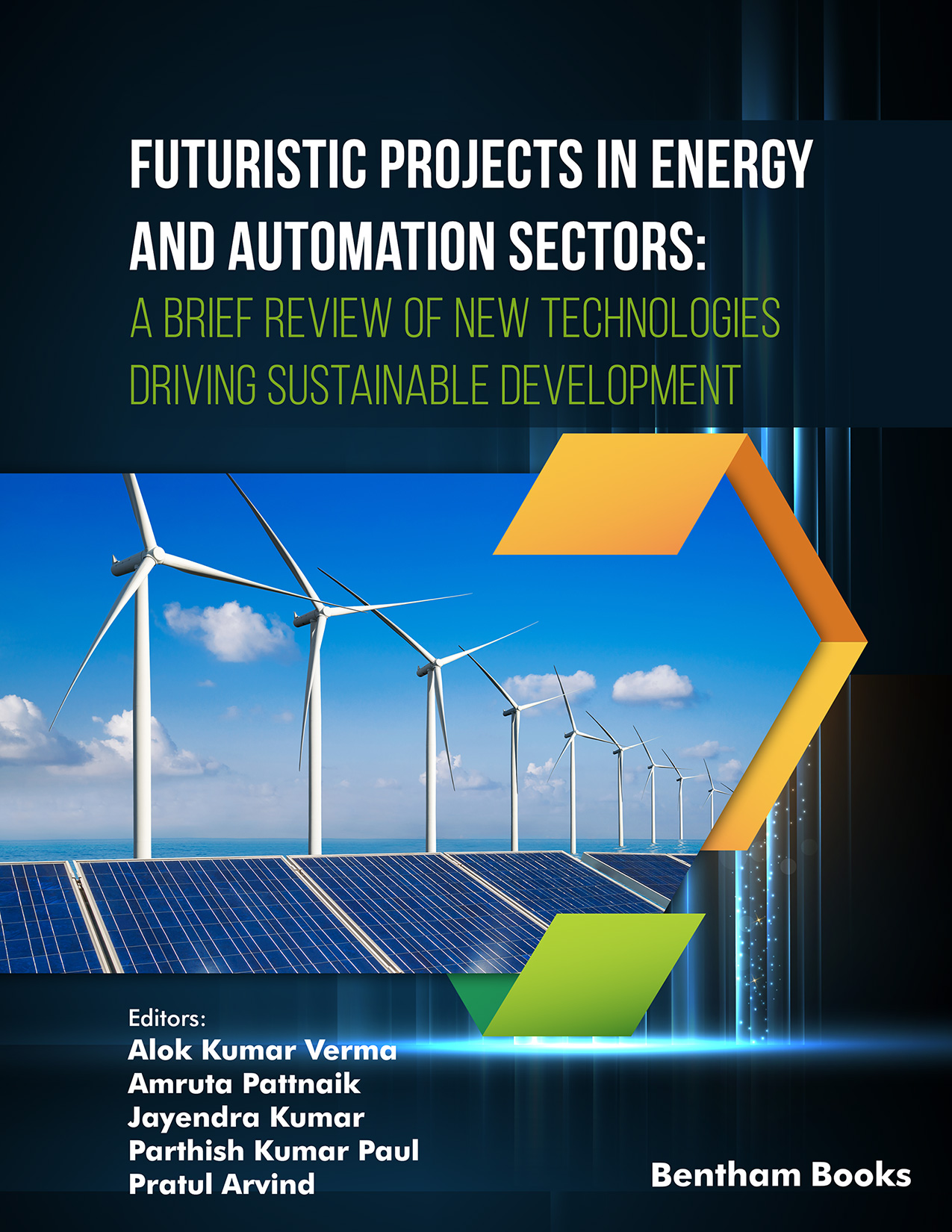In light of the present-day statistics of coal mines and petroleum bases off-shore, the globe will be devoid of core energy sources in a very short period. Thus, many countries mandate exploring renewable energy resources without any further delay. The present endeavor, namely, ‘Futuristic Projects in Energy and Automation Sectors’ is an initiative taken by Bentham Science, technocrats and researchers to expedite the mission of establishing new RERs and propose a support system for future developments in RERs through experiments and studies. This volume would be a handbook for scientists, technocrats, researchers, teachers, students, practitioners, law makers, and industry experts working in the disparate areas of energy conservation, global warming, green energy, conservation of earth, automating services, electrification, energy optimization, and what not.
However, limiting the focus of the stakeholders to a few specialized areas of evolution, the current volume is restricted to a classified set of topics, viz. 1) energy research that includes power systems, renewable energy, power storage, and power electronics, and 2) automation that involves robotics, control systems, and artificial intelligence. Thus, this text is a conglomeration of the specific areas of 1) Power Systems, 2) Renewable Energy, 3) Power Electronics, and 4) Energy Storage and Conversion, 5) Home automation, 6) Control Systems, 7) Robotics, 8) Artificial Intelligence, and 9) Technology to fight COVID-19. Thus, this handbook is an optimal compilation of the present-day issues and futuristic solutions to the problems in energy and allied topics by means of Electrical and Electronics Engineering. The chapters presented in this book are based on experiments in the laboratory or field to establish a hypothesis or retest a fact.
The book is technically classified into five units, viz. 1) Advances in Energy Systems, 2) Renewable Energy, 3) Advanced Approaches in Electric Vehicle Technology, 4) Control, Automation and Smart City, and 5) Artificial Intelligence.
Chapters 1, and 2, comprise the chapters in the diversified areas of sustainability of bioenergy during the pandemic and beyond, and green economy with blockchain.
Chapters 3,4 and 5 deal with the studies of solar energy for the future, optimization of the hybrid energy storage system, and wind turbine performance studies.
Chapter 6 deals with electric vehicle charging technologies and their harmonic studies.
Chapters 7,8,9,10, and 11 have brought forward the latest technologies in the applied areas of control, automation, and IoT devices. The topics are solid waste management, sanitized vehicle parking systems and their simulation results, performance analysis of induction motor drives, and Advanced Reconnaissance Rover.
Chapters 12,13,14,15 and 16 are the last but not least as it comprises energy optimization projects via artificial intelligence techniques. The topics are digitalized agricultural phenomena using disruptive technologies, image processing on resource-constrained devices, quantum computing in artificial intelligence, gesture-based ATM security, and big data.
Alok Kumar Verma
Advanced Remanufacturing & Technology Centre (ARTC)
Agency for Science, Technology and Research (A*STAR)
3 Cleantech Loop, #01/01 CleanTech Two, Singapore 637143, Republic of Singapore
Amruta Pattnaik
Department of Electronics & Communication Engineering
Dr. Akhilesh Das Gupta Institute of Technology & Management
New Delhi, India
Jayendra Kumar
Department of Electronics and Communication Engineering
National Institute of Technology Jamshedpur
Jamshedpur, India
Parthish Kumar Paul
Read Ink Technologies
Bangalore, India
&
Pratul Arvind
Department of Electronics & Communication Engineering
Dr. Akhilesh Das Gupta Institute of Technology & Management
New Delhi, India

